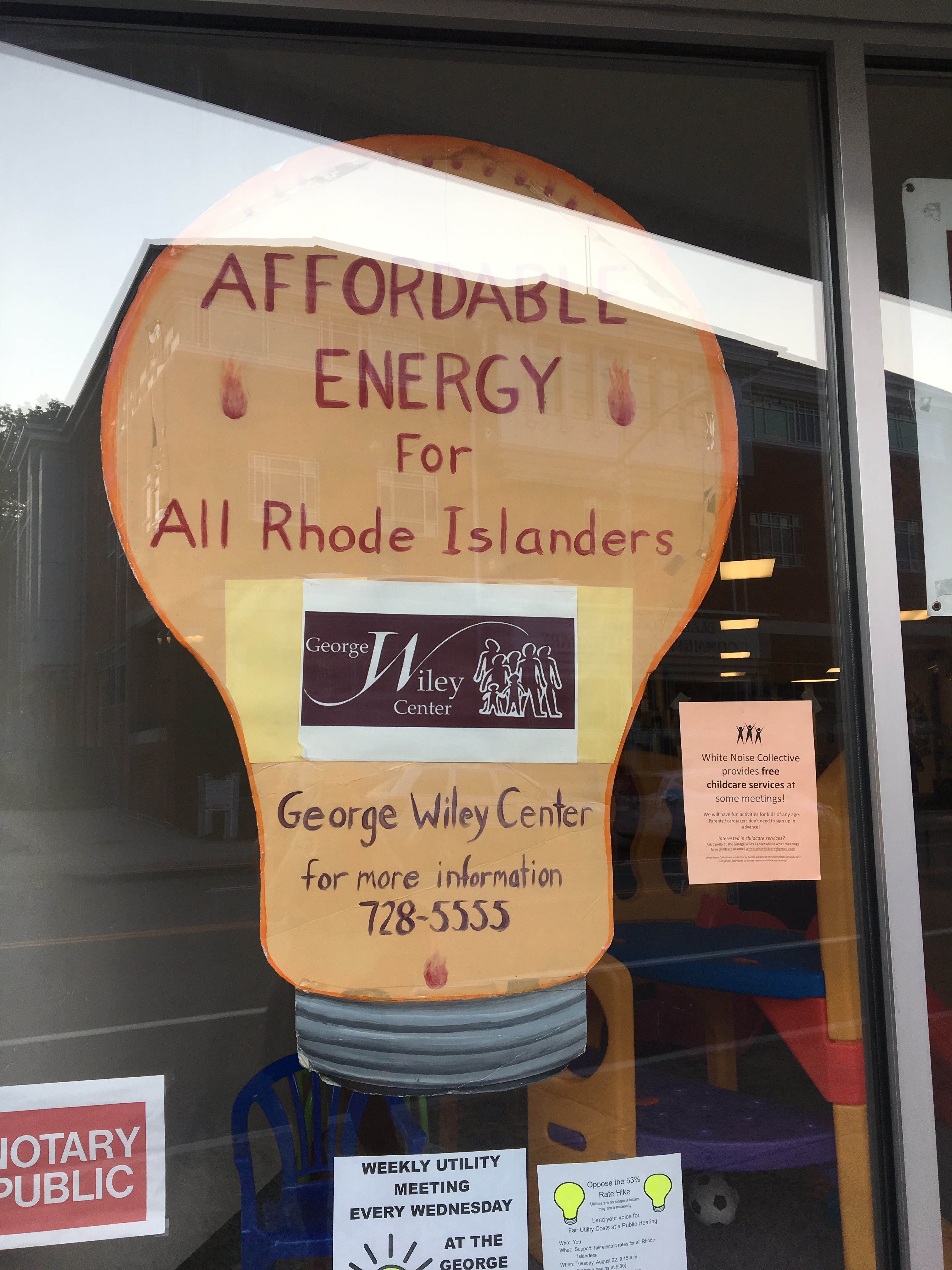Rhode Islanders concerned about proposed National Grid rate hike
Tomorrow morning the Rhode Island Public Utilities Commission is holding a hearing on National Grid’s proposed rate hike. The company has proposed a 53% increase in electricity rates in Rhode Island, meaning bills would go up on $17 a month on average. The potential price jump...
Tomorrow morning the Rhode Island Public Utilities Commission is holding a hearing on National Grid’s proposed rate hike. The company has proposed a 53% increase in electricity rates in Rhode Island, meaning bills would go up on $17 a month on average. The potential price jump has led to concern, particularly amongst low-income, elderly, and disabled Rhode Islanders.
Camilo Viveiros, Coordinator of the George Wiley Center, opposes the proposed rate increase. Viveiros says the Wiley Center receives up to 50 calls a day from Rhode Islanders facing utility shutoffs, and that these people are already experiencing the consequences of “unfair utility policies in Rhode Island.”
Last week at their regular meeting, members of the George Wiley Center shared stories about their experiences with being shut off. One woman in the group reflected on when she didn’t have enough money to pay her bills after she was laid off. Ashamed, she lit lanterns and shut her curtains so that her neighbors wouldn’t realize what had happened. Then, she was forced to ask her elderly parents for money.
“We talk to people every day that feel embarrassed or ashamed because they’ve been taught that they’re the problem when they can’t afford their bill,” Viveiros said. He’s opposed to the rate hike because he says even more Rhode Islanders would face shut offs.
Ted Kresse, a spokesperson for National Grid, acknowledges that this is a significant increase, one that would make Rhode Islanders’ overall bills go up about 18%. However, he said that National Grid doesn’t have control over electricity prices.
“When customers receive a bill from National Grid, that bill is broken up into two portions – the supply services side and the distribution side,” Kresse said. “This increase is only on the supply side, and it’s a result of current energy prices, which the market dictates.” Kresse said National Grid is passing the cost of energy along to customers “without profit or markup.”
Viveiros is skeptical, noting that National Grid is a for-profit company. “There’s this idea that supply and distribution can somehow be separate and it isn’t going into the same pool,” he said. “But we know that the tension really fundamentally is around the bottom line.” Congressman David Cicilline, who says he’s also concerned about the potential rate hike, noted National Grid’s profits as well. He said that it’s not clear to him that an increase is necessary to cover costs, and that the company will need to prove that at tomorrow’s hearing.
As a way to make utilities more affordable for Rhode Islanders, the George Wiley Center is advocating that National Grid implement a percentage income payment plan in the state. This would create a tiered billing system based on income. A similar system existed in Rhode Island in the 80’s and 90’s, but ended due to federal budget cuts. Now, 12 other states have their own income-based utility payment plans.
“You think of how many millions of dollars low-income people, seniors, the disabled have paid,” Viveiros said. “And enough is enough. We need the percentage income payment plan to protect those who are most vulnerable here in Rhode Island.”
Cicilline also said adopting an income-based payment program is “the very least” National Grid could do. He noted that in the first six months, bills would cost an additional $102 after the rate hike, and that Rhode Islanders have a right to be concerned over an increase of that magnitude.
Viveiros and others at the George Wiley Center have spent weeks collecting comments and testimony for tomorrow’s hearing. He said he remains optimistic that the Public Utilities Commission will reject the proposed rate increase. The hearing starts at 9:30 tomorrow morning at the state Public Utility Commission’s office in Warwick.

